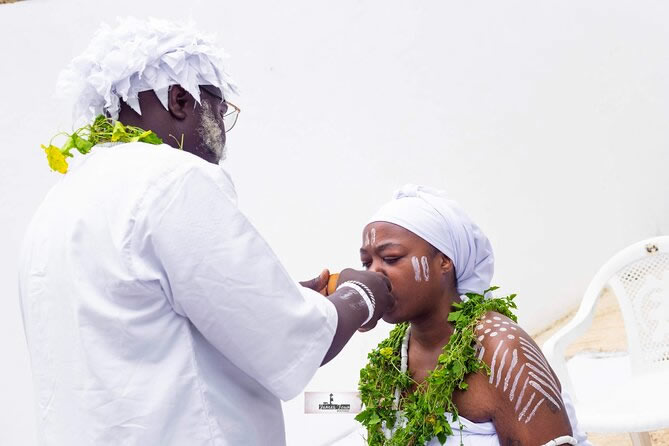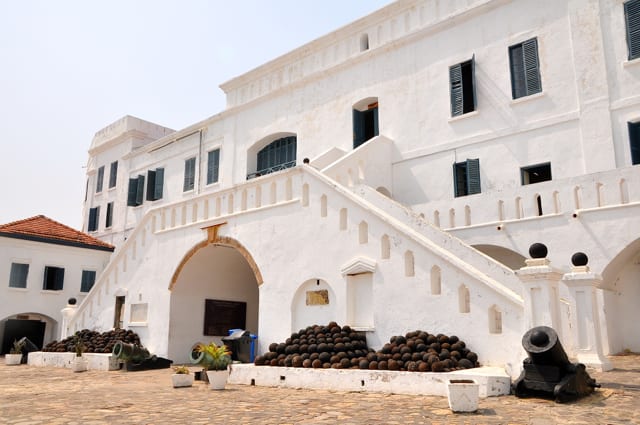PANAFEST 2025
Background
PANAFEST – The Pan African Festival of Arts and Culture radiates from its originating ethos being that historical theatre provides a powerful medium for thrashing out the unspeakable truths and questions about the impact of the enslavement of African people. The power of the arts and ritual to commence the healing process, build bridges and re-envision the future for Africa and her people globally has led to a festival which, after 30 years, encompasses several platforms for self-expression, sharing, dialogue and action.


The main setting for PANAFEST is the twin towns of Cape Coast and Elmina in Ghana where 2 massive fortresses provide a grim reminder of over 600years of European plunder of West African resources, the enslavement of the people and colonialism. They are a reference point for the terrifying reality of massive alienation within the African family on the one hand, and the soul-soaring recall of the monumental resilience of the ancestors which must inspirit the reunification of the Global African Family.
PANAFEST 2025 follows the 2021 edition held with due caution in the wake of the COVID 19 pandemic which addressed its particular impact on Africa and her descendants around the world. That edition of the festival raised issues around Securing the African Family: Our Soul, Our Health, Our Wealth. It was important to celebrate the courage, resilience and innovation demonstrated by our front liners, scientists, health workers, inventors, artist(e)s, community activists and careers. Additionally, activities were directed towards safeguarding our spiritual strength, health and wealth, all of which have been breached by the wave of the pandemic.
In 2025, PANAFEST bounces back with the theme “Re-Claiming the African Family: Confronting the Past to face the Challenges of the 21st century.
The biennium (2021-2025) requires deep reflection as it has seen a number of developments which should be of concern to thinkers and creators in the African space.
The resurgence of powerful voices and action focused on asserting the truth about the Trans-Atlantic slave trade and the experiences of Africans descendants in Europe and the Americas has led to the exposure of the deep involvement of many institutions and iconic personalities in conducting the slave trade and in profiting across generations from it. There seems to be a pushback on this exposure represented by the extreme proposals that this information should not be taught in some jurisdictions in the United States of America. Admissions and apologies by some of the institutions and families involved have been made but a number of important questions arise about whether these gestures are sufficient. Demands for restitution of looted art and reparations for centuries of brutal exploitation are examples of the concentration of African energies on Africans and their collective wellbeing around the world. As some young people militate for decoloniality and against misrule on the continent, the call for restorative justice refuses to be suppressed in the African Diaspora exemplified the Caribbean leads in the claims for reparations.
However, more than ever before Africans on the continent are having to wrestle with dispossession of their material resources and a loss of control of the direction of their economies. It would seem that young continental Africans once again have lost the sense of hope and dignity which is their right if they are ever to take ownership of their continent. There seems to have been an unveiling of the vulnerable, underbelly of the lived experience of many Africans. One aspect of this phenomenon is the extent to which an alarming number of young Africans- the largest proportion of the continent’s population are becoming progressively alienated from the continent. Is being African perceived as a barrier to their future well- being? Is there a parting of ways between the generations who experienced the hope of the civil rights movement and the anti-colonial movement on the one hand and those born into the age of the Global Citizen?